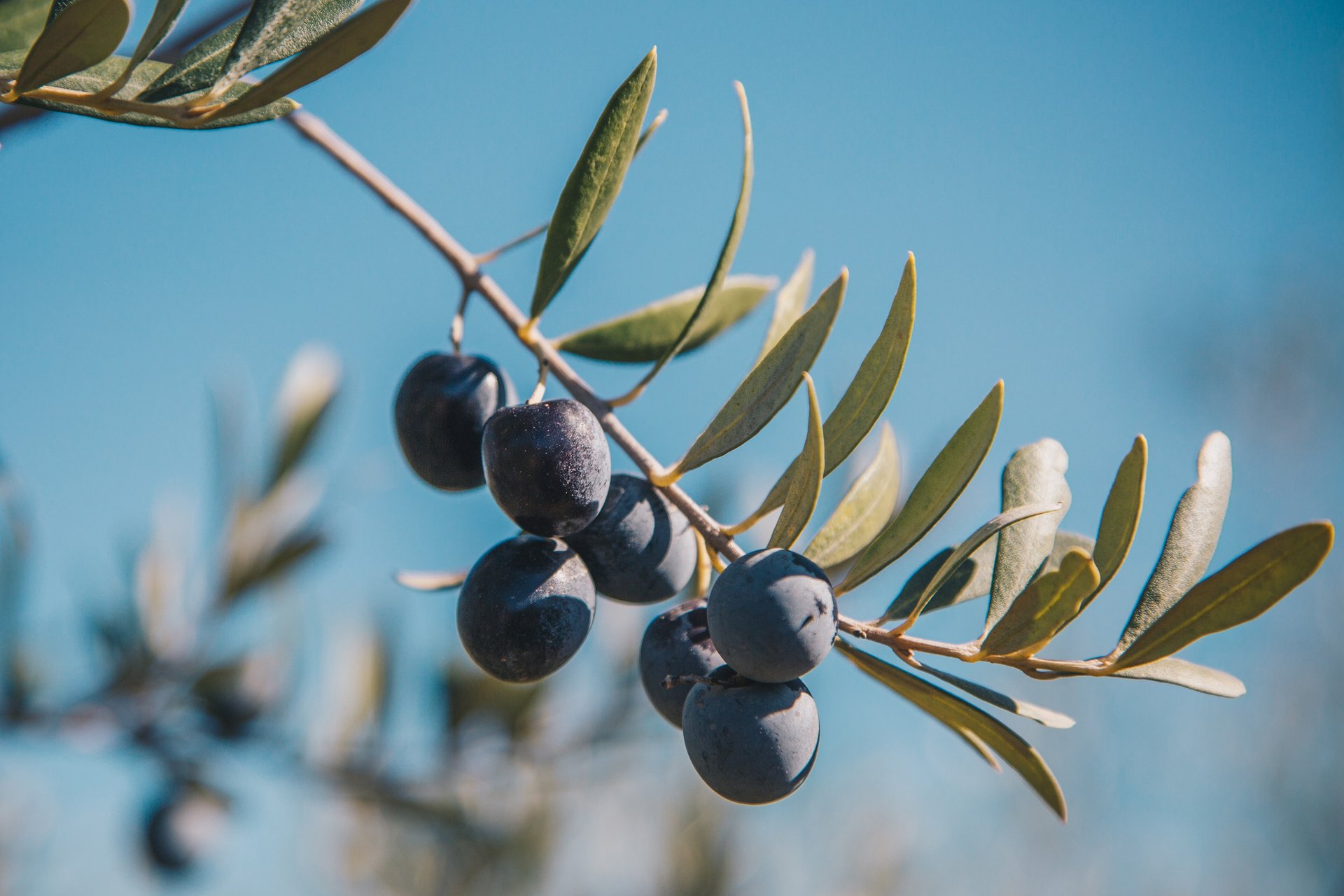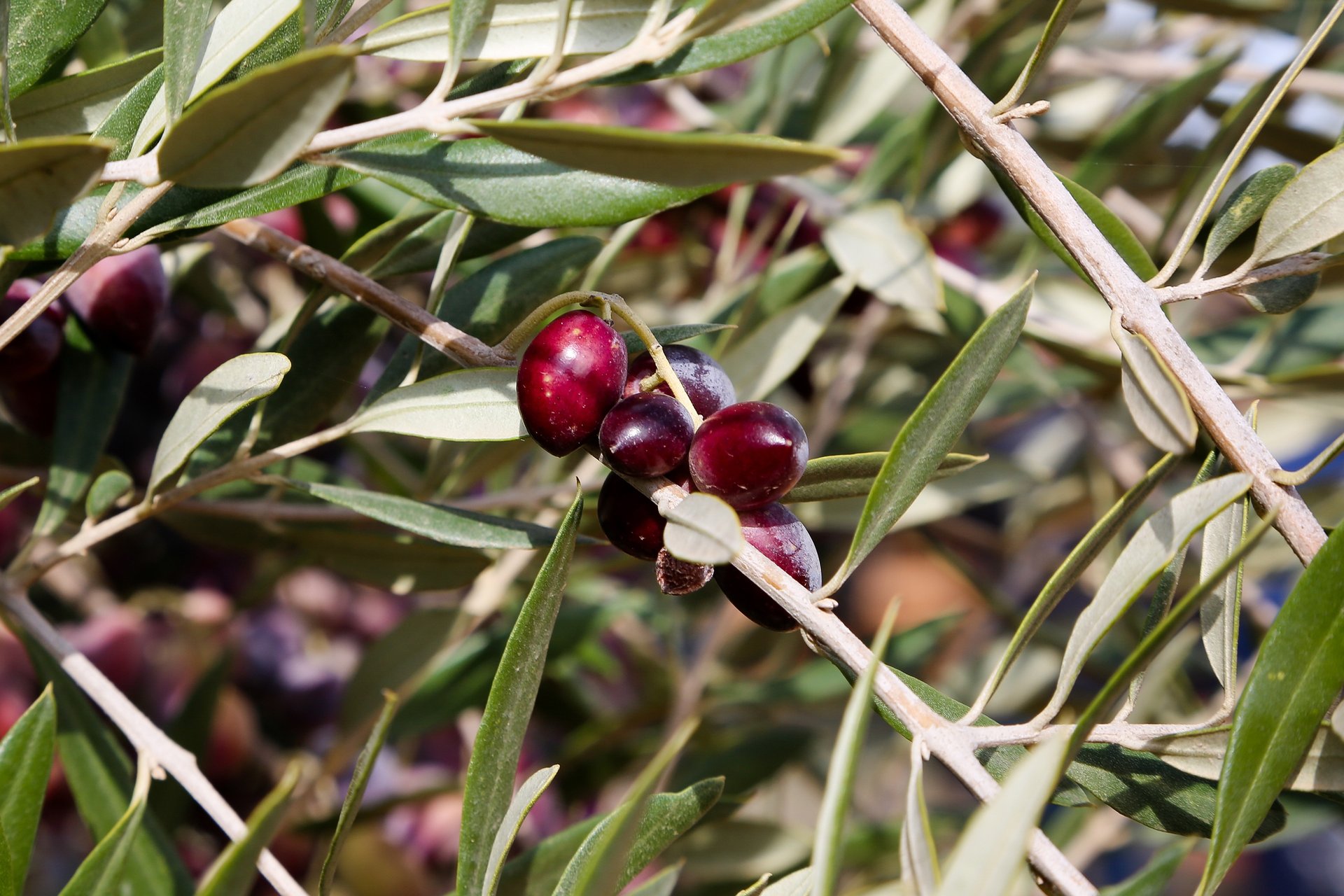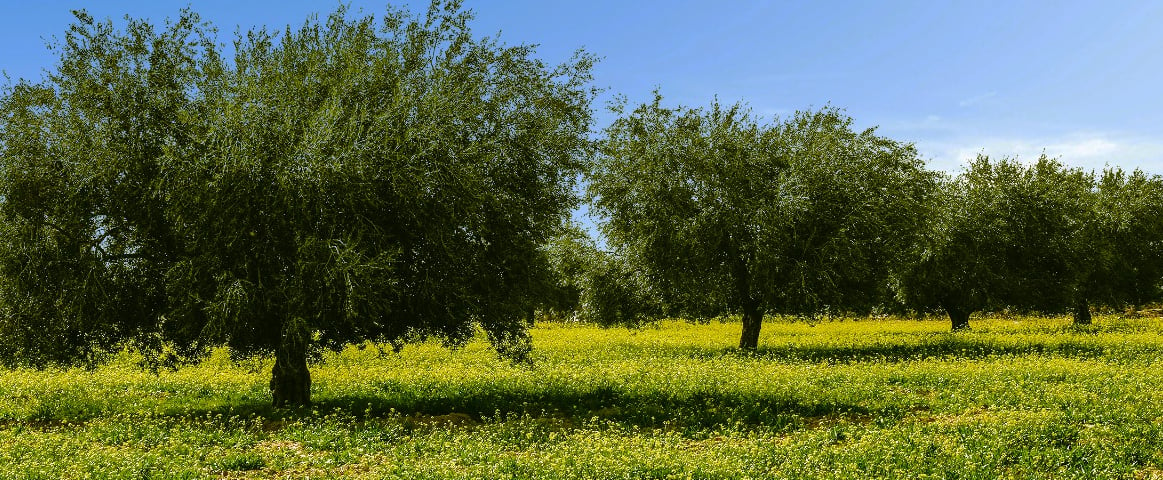
THE TUNISIAN ADVANTAGE
Tunisia, the second-largest exporter of olive oil, boasts a rich olive-growing heritage. Our arid climate, with over 30% of arable land dedicated to olive cultivation, creates ideal conditions. Our near-organic culture, with minimal intervention, combined with abundant sunshine and rainfall, results in olives of exceptional quality and flavor.



THE KAIROUAN MODEL : A SUSTAINABLE ECOSYSTEM
At OLIVED, sustainability is at the heart of everything we do. Our Kairouan farm is a testament to this commitment. Here, we raise superior cattle breeds, transforming their manure into nutrient-rich compost. This compost nourishes our rain-fed olive groves, cultivated without irrigation and home to indigenous olive varieties like Chetoui.
This closed-loop system ensures our olive trees thrive naturally, drawing strength from the land itself. By avoiding synthetic fertilizers and irrigation, we preserve the authenticity of our olives and the integrity of our soil. The result is olive oil with an intense, authentic flavor—a true reflection of our terroir and traditions.



THE AKARIT OLIVE TREE:
A LIVING TESTAMENT TO TUNISIA’S OLIVE HERITAGE
In the heart of Tunisia stands the Akarit olive tree, one of the oldest olive trees in the world. Estimated to be over 2,500 years old, this ancient tree is a symbol of resilience and endurance. Its gnarled trunk and sprawling branches tell the story of centuries of history, culture, and tradition. The Akarit olive tree is not just a tree; it is a living monument to Tunisia’s olive oil heritage. It serves as a reminder of the deep connection between the Tunisian people and the land they cultivate. At Olived, we draw inspiration from this ancient tree, striving to preserve the traditions and authenticity that have made Tunisian olive oil a global treasure.

THE OLDEST OLIVE TREE IN TUNISIA
Nestling at the entrance to Haouaria, the thousand-year-old olive tree of Echraf is an exceptional natural monument, bearing witness to over 2,500 years of history. It has seen the Phoenicians and Romans, embodying the resilience and traditions olive-growing traditions. Its gnarled trunk and imposing branches tell a story of endurance, as it continues to produce as it continues to produce olives, a symbol of the richness of the Tunisian soil.
Contact
(+216) 92 300 800
Contact@olived.tn
Contact us for enquiries



